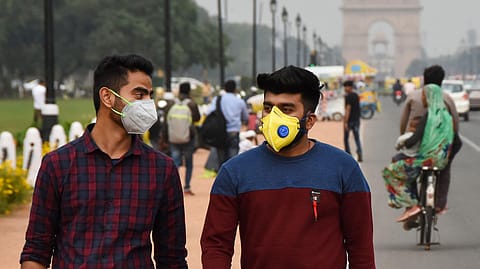India’s Great Power ambition in the age of coronavirus
Pandemics have historically led to a collapse of economies and geopolitical power shifts. What can the coronavirus deliver for India?

This essay is a continuation of a series that I am writing on the Great Power ambitions of India, the world’s fifth largest economy, and with 1.3 billion people—the largest democracy.
In two earlier parts of this series, I have dealt with how India could ‘learn’ to be Great Power and the role of technology in the creation of Great Powers.
This essay is concerned with what happens to rise and fall of Great Powers in times of global pandemics or disease which spread rapidly and kill or impair a vast number of people.
Recent research has pointed out that the expected economic loss from a pandemic, for instance of influenza as used by researchers could reach up to $500 billion a year or 0.6% of global income a year. Such a pandemic could kill up to 720,000 people a year.
Historically, pandemics have not only had epochal economic impact but also have led to shifting sands of global power. It was probably typhoid fever that wiped out two-thirds of Athens as the city-state fell to its old rival, Sparta, around 430 BCE. In 1300, Black Death or bubonic plague broke the back of the Viking conquest of North America. In the 1500s, smallpox decimated the Aztec empire. Apathy from the British government during a plague pandemic in 1855 stoked the fire of revolution in India against colonialism.
The coronavirus has also stoked a lot of debate about the dependence of the world on Chinese manufacturing supply chains. If those would be replaced swiftly leading to some lasting transformation in global value chains, and if a country like India, which, till now, seems to have contained its coronavirus crisis with some success, and its ambitions, could be impacted by the shifting tides of this pandemic.
More than mere value chain inputs—which are obviously very important—it is worth considering, foremost, the impact of this pandemic on what I would call the global strategic psyche.
Recommended Stories
Money, investment, if you will, seeks first and foremost sustainable stability. The question is which country would be best placed to provide it (or tell a convincing story that it can provide it)?
The competing narratives of various countries are today being determined as much by the responses of their governments as they are by the body count of people succumbing to the disease in that geography.
It is also based on what political leadership in each country can propagate—does that political leadership exude confidence during such a Black Swan incident or does it appear callous and lackadaisical?
What also needs to be asked is—what kind of risk analysis now needs to be built into any analysis of an investment destination, and what can governments do to craft a new storytelling strategy that convince investors?
(INR CR)
Also, what does such an event mean for any future-casting of strategic risk? Could such a virus be lab-raised and deployed as a weapon? Now that the potency of such a virus is well-known, what could be the antidote to such potential state behaviour?
In a sense, what the coronavirus has done is created new space for empowered actors which are neither European or American, and not even Chinese. Its spread and impact on those geographies means that countries that are relatively less locked down, and have economic and political strength, have an opportunity to consider their position in the world afresh.
This is not to suggest that either Chinese, European or American might is disappearing in a hurry but it does raise questions—especially at a time when the epicentre of the coronavirus might be moving from China to Europe—about what are the new ways of propagating influence around the world.
For India, constrained at it is compared to its wealthier competitors, materially, it urges a realignment of the way it sees its role in the world, from the propagation of its economic opportunities to its strength of its cultural attributes (more people, including leaders, around the world today are being forced to use the Indian palm-folded namaste greeting instead of shaking hands, to give but a tiny example).
This is a moment when India has an opportunity to tell a new story. Indian Prime Minister Narendra Modi’s announcement of a SAARC (South Asian Association for Regional Cooperation)-wide deliberation for a joint strategy in the fight against coronavirus comes even amidst Italian accusations that the European Union has been slow in helping the country which is under lockdown due to a dramatic rise in virus-affected cases.
How well India can now tell its story will impact the tale of its rise.
Views are personal.
The author is a historian and a multiple award-winning author.